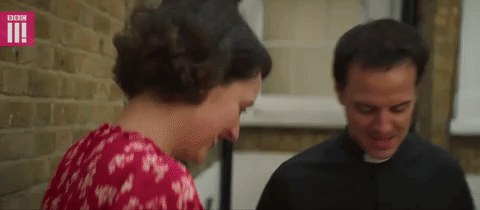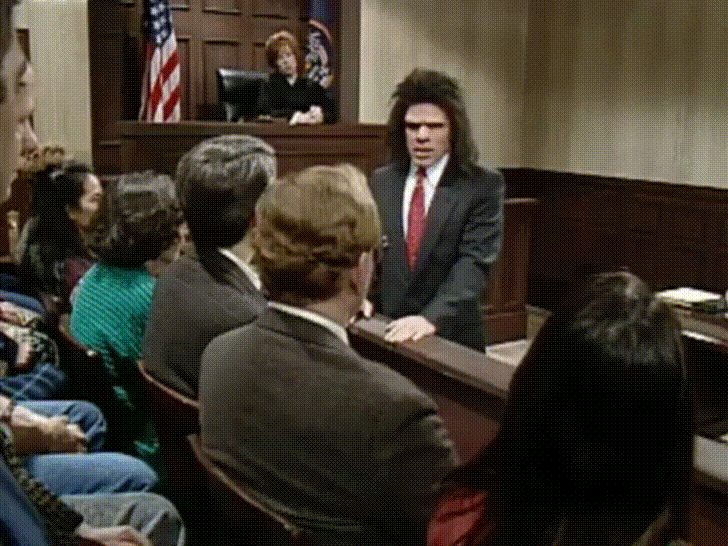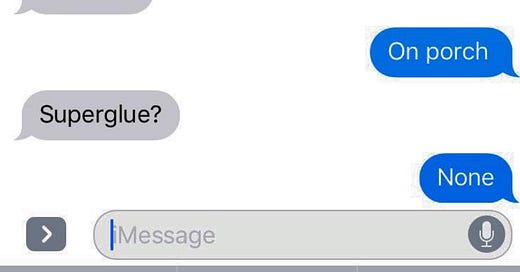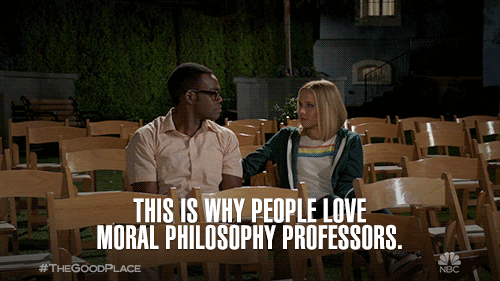There is a small but solid circle in the Venn Diagram of my life labeled Witches Who Work In Religion, probably due in part to of 12 years Catholic school. I have always wanted to sit down with these women and ask what it’s like to be a progressive feminist whose job involves a traditionally patriarchal system, how they keep the faith these days, and how they approach religion with their kids. I thought this was a good time of year, time of life, time for our country to do so.
Today’s interview is with: Elizabeth Sweeny Block, Ph.D., assistant professor of Christian ethics at Saint Louis University, Heather Miller Rubens, Ph.D., executive director at the Institute for Islamic, Christian, and Jewish Studies in Towson, Maryland, and Meghan Murphy-Gill, who is a postulant for priesthood in the Episcopal Church, holds an M.A. in systematic theology and was an editor at the Chicago-based US Catholic magazine for 9 years. They all have kids between four and eight years old.
What you have told your kids about God?
Elizabeth: I outsource my children's religious upbringing to their Catholic school, but that only gets the conversation started for me. So I don't count on Catholic school to teach them everything they need to know. I come at theology from the perspective of ethics, so I think about all the questions that are being asked and how I talk to my kids.
I talk a little bit with my kids about God in as much as I have to at a four year old and seven year old level. But we don't, truth be told, do a whole lot of it because I'm so used to talking to other theologians and adults about this stuff that I feel like I'm not well-equipped to talk to a four year old about God. So I do a lot of just correcting when they bring things home. Like for instance, they always talk about God as he. And it drives me insane. So I constantly try to fix that. And I don't think they get it just from school. I think it's just everywhere. It's just like the default setting. It drives me bananas.
How do you handle being a feminist who works in such a traditionally patriarchal space?
Elizabeth: I care a lot about how religious practices, concepts, and doctrines play out in the practical realm, the practical implications of those doctrines and what sort of impact do they have on people and on social justice.
I stay because I believe in the fundamentals. I know that there's a lot of other bullshit that's been piled on top of that that's not really true, genuine and authentic theology or faith and so I stay to sort of parse out those differences.
I stay to cause trouble is the short answer. And I'll be able to cause more trouble when I get tenure.
What are misconceptions people often have about your job?
Elizabeth: Like I must be judging everything that they do. And just because I know better doesn't mean I do better. I am cursing like a sailor with the rest of them and I have all kinds of vices myself. I've also had people be like, “You don't look like you teach theology.” And I was like, “I don't know what you're supposed to look like when you teach theology.”
Heather: I think that people either assume that I'm super religious and that they can't swear or have to behave better. Because I do interfaith work, some people think I'm the world's crappiest Catholic, because I'm willing to go into synagogues and mosques and various other religious spaces. And I'm just like, "You know about the Second Vatican Council?"
Meghan: People always think that they can't swear around me when I probably have the worst potty mouth, definitely more than my husband. Or they think that somehow, because I'm going to be a priest. that I'm particularly holy. I sometimes wonder if I'm becoming a priest because I need religion more than most other people do. Like I need to be closer to church all the time. When people feel the need to tell me about their church-going habits, they get sheepish about not “going” to church often. But I always say, “No, maybe you just don't need church in your life as much as I do.” I don't judge people for not going to church.
What kind of conversations have you had with your kids about death?
Meghan: I recently took my 5-year-old to an All Souls Requiem at an Anglo-Catholic parish, which is where I'm doing my internship. Anglo-Catholics have a very old style of liturgy and ritual. It’s very ornate. Think smells and bells. He sat quietly and was mesmerized for the first 18 minutes because there's this thing called a catafalque, a mock casket, right up in front of the altar. It looks like a coffin covered in a funeral cloth. He had a lot of questions like, “What's that? What's a casket?” I told him, “That's where we put the body of someone who's died.” I realized he's never actually encountered this. He wanted to know if anyone was actually in there, so I had to tell him, “No, there’s nobody in there. It's more a place to imagine that we've laid the bodies of people we know who have died to rest.” Because he recently, thanks to Halloween decorations, had learned that RIP means “Rest in Peace,” he thought this was the coolest thing.
He wanted to know if we could imagine our deceased cat in the catafalque, because that's the only real encounter he's had with death. I said, "Absolutely, we can imagine Jarvis in there." When we had to deal with our cat’s death when my son was three years old, I felt like we just kind of went into it. And I've never tried to shield him. He's also never asked where people go. He just knows that people are gone and that we hold onto their memories in our hearts and we remember them and that they're with God. We don't really talk about heaven, we just talk about people being with God. I don't have a problem with people using the idea of heaven to talk about death, but I think that it can really distort our understanding of life and death. There are lots of pitfalls, especially with kids, so I’ll avoid it until my son asks about it.
Heather: My dad was very sick last year, in and out of the hospital and not doing well. I wasn't sure where his recovery was going to go, and started talking about it. I think they understand that you get older and then you're just not there. My husband's grandmother celebrated her 100th birthday this year and looks on track to make 101, and she still lives alone. She's still trucking along. And so I think that they also have this weird distorted sense where I'm like, “You know that Gigi is very unusual. We are all not going to live to that age.”
How do you handle it when your kids ask really difficult questions about faith? Do you go more with what they want to hear, or what you want to say?
Heather: What I was actually thinking about in the context of the family dynamic is how the conversations happen within your marriage and how that affects how you talk about it with your kids. Because I'm married to an agnostic. An agnostic that loves good rites and ritual, but would never call himself a believer. My husband goes to church with the family. He just doesn't receive communion, but he's present. He wants our children to experience the same faith experience that shaped me, and his mother. So he not only goes to church with us, but he now when we're visiting his family, he will go to church with his mother and bring our kids.
How I think about religion, and approach religious conversations, and how he thinks about religion and approaches life’s BIG questions are very, very different. And so how we talk to the kids is different. I think exposing kids to different religious viewpoints in healthy. He and I don’t fight over religion, because we worked it out between us a long time ago.
Meghan: We don't give kids enough credit for what they're able to handle. There’s all kinds of variety and uncertainty that kids actually can handle when it comes to this stuff. Kids are able to live with all of the differences people have vis-a-vis religion, culture, faith, and beliefs. Way more easily than we give them credit for.
How do you get your kids to church regularly?
Elizabeth: I'm married to a cradle Catholic and neither of us are not the best at enforcing Mass attendance on Sundays. We ebb and flow, which is terrible. But also my kids go to a Catholic school where they go to Mass every week. So I feel less guilty because they're getting it every week at school.
I actually think I need to go to church. I really do. I need that time. It's very easy for me to get lost in academic theology and forget the reasons why I do what I do. So I want to go to church and I want it to be something our family does. We just get so busy and Sunday morning is the one morning we don't have to get up and rush anywhere, so now we're experimenting with Saturday evening Mass.
When have you struggled the most in your faith? Did you wait for it to go away or did you work through it?
Heather: So personally right now I'm not in a great spot with personal belief or practice. To remedy that, I decided to try to hang out with awesome religious women at a great Carmelite monastery that is close to my office. I sought out one of the nuns for spiritual direction and walked into our first conversation and just put it out there: I got nothing right now. My spiritual well is feeling pretty dry. And she just gently reminded me of stuff that I know intellectually, but had not felt in a long time. She gave me permission to relax about it, and stressed that each person’s relationship to God and belief is evolving. It is different when you're 12, different when you're 30, different when you're 40, different when you're 60. She said, “You're in a phase. Just ride it. Don't judge yourself, don't be hard on yourself and it's going to be fine.” And then we've just sort of talked about other things regularly. I don't think I'm really in a different place than I was when I sought her advice, but I'm not beating myself up about it.
Elizabeth: For me it's probably right now also. I feel like sometimes I'm just sort of going through the motions when we go to church. It doesn't feel like the same kind of vibrant faith I think I felt when I was in high school and college and even in my early twenties. I think it probably has a lot to do with just feeling pulled in so many directions that I don't give my faith the attention that it needs.
It's a bit like my marriage. That doesn't just happen without me putting some work into it and I probably have let my faith kind of slide because I thought “Well, it's there and I have it and so what do I need to do?” But I'm realizing that I need to put that same kind of work into my faith that I do into relationships with other people.
Meghan: This whole process of becoming a priest has been really challenging because it’s made me realize all the different ways people see priests. I want to do a good job, but it’s so many different things to so many people. Plus, I’m 40 years old and going through a massive career change. It's one of those jobs where people actually ask you to put your trust and faith in God. And I don't necessarily always have it, which really is just part of the journey—for anyone, not just someone uber religious, like me. But in order to be in the process, I really have to tap into the idea of trust and letting go daily. Plus, as an intern at a church I'm really practicing the faith right now. The practice part is discipline for me and it really has helped my prayer life to flourish. So right now, I feel like my faith is fairly vibrant.

End credits
I hope you enjoyed today’s issue of Evil Witches, Christian as it is (alternate perspective arriving later this week). Please consider becoming a paying subscriber to support the work and get some extra content. Or at least forward to a bunch of friends and encourage them to subscribe!
If you’re interested in writing a guest post, have a suggested topic or have any general questions or you can reply right to this newsletter. You can also follow us on Instagram and have witchy conversations on Twitter too. Oh and I think that you should obviously get your Witchmas match a gift subscription for the holidays:
One witchy thing





